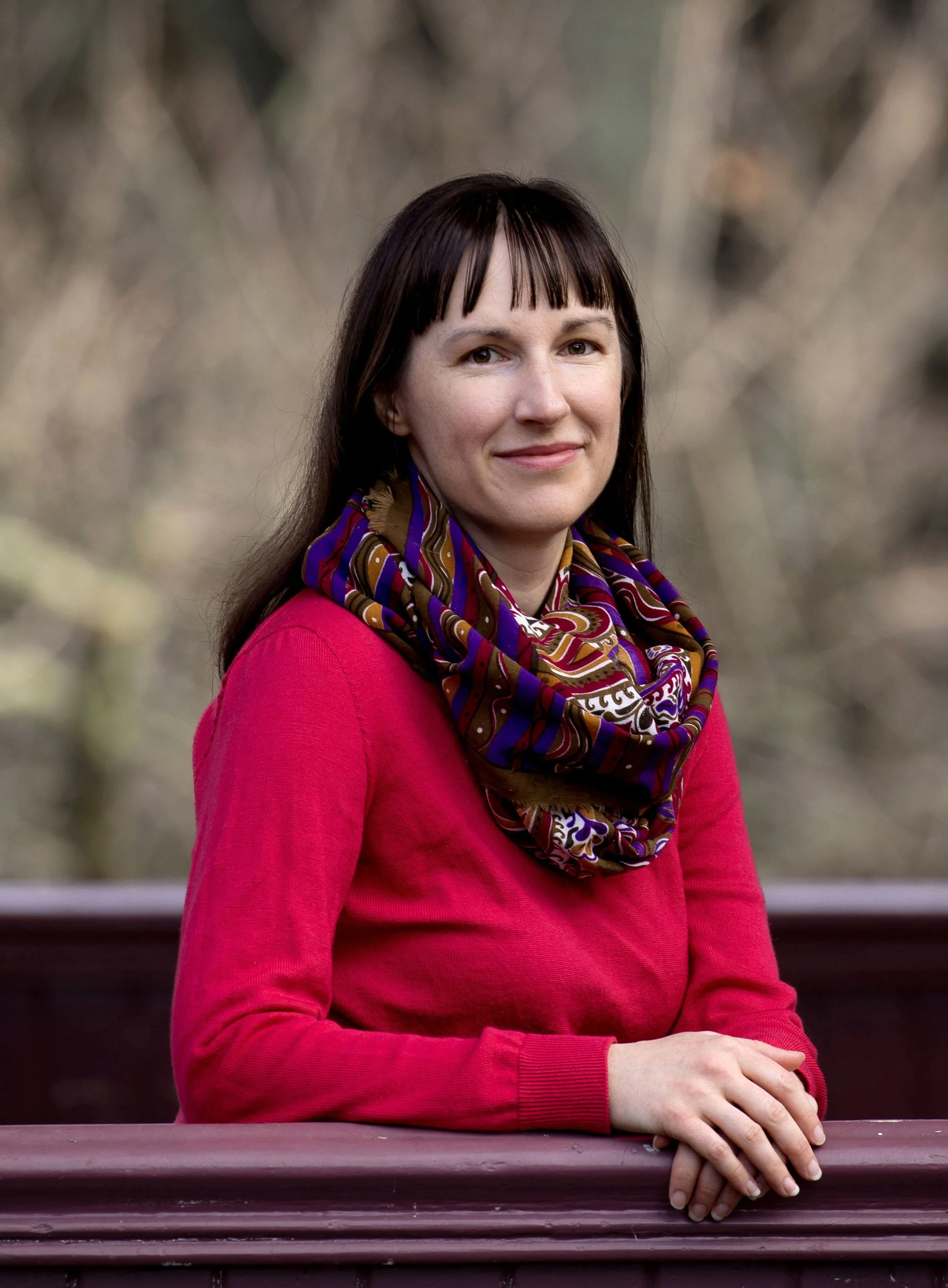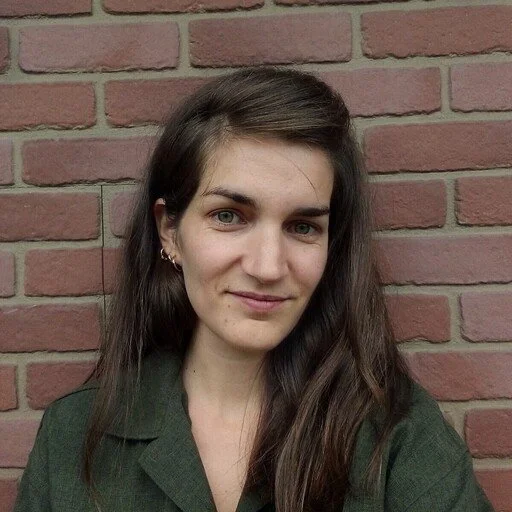STSFAN Member profiles
-

Julie Guthman
A geographer by training (PhD, University of California 2000), Julie is a distinguished professor of sociology emerita at the University of California, Santa Cruz. Broadly, her research has been about the conditions of possibility for food system transformation in the US, exploring efforts such as organic farming and labeling, food justice movements, and pesticide regulation. Most recently, she was the principal investigator of the UC-AFTeR Project, a multi-campus collaboration that explored Silicon Valley’s recent forays into food and agriculture. That project explored how Silicon Valley funding mechanisms, cultures of innovation, and technological tools encountered the unique material, cultural and political-economic aspects of food and agriculture. Her most recent book, The Problem with Solutions: Why Silicon Valley Can’t Hack the Future of Food (University of California Press, 2024) discusses some of that research as well as the proliferation of solution culture in our universities and beyond. Julie is an active member of STSFAN and has been the primary moderator of our monthly workshops since their inception.
-

Charlotte Biltekoff
Charlotte is Associate Professor of American Studies and Food Science and Technology at the University of California Davis, where she builds bridges between scientific and cultural approaches to questions about food and health. She is most interested in where ideas about “good” and “bad” food come from, the social and cultural roles they play, and their political stakes. She is author of Eating Right in America: The Cultural Politics of Food and Health (Duke University Press, 2013), an exploration of the social and cultural dimensions of dietary advice and the changing meaning of “eating right” over the last century.
-

Mascha Gugganig
Mascha is a sociocultural anthropologist, STS scholar and curator for exhibitions at the intersection of (agricultural) science, technology, society and the arts. She holds a PhD in Cultural Anthropology from the University of British Columbia, and is currently senior lecturer and co-director of the Center for Life Sciences and Society at the University of Munich (LMU). Her research focuses on contested technologies – e.g., genetic engineering, indoor farming, digitization – and how agrifood visions across different epistemic communities (policymakers, entrepreneurs, farmers) both legitimate and challenge them. Her current work is concerned with grassroots agriculture technology development, as emancipatory path towards agroecology that also critiques the dominant high-tech industrial farming system. She has supported STSFAN since its inception in 2019, which has become her most inspiring intellectual writing community. Her work is published in American Anthropologist, Science, Technology & Human Values, Agriculture & Human Values, and the University of Toronto Press.
-

Charlie Mather
My research is broadly situated within the field of agri/aqua-food politics. Previously, my research focused on the political economy/ecology of salmon aquaculture in Canada and beyond. While I continue to research this issue, my more recent research is connected to a project on feed and feeding in animal agri-aquaculture. This is a collaborative project with Sarah Martin a colleague in the Department of Political Science at Memorial (and an active member of STSFAN). Our most recent contribution on this theme is a recent paper in Progress in Environmental Geography. Theoretically and conceptually, I work at the intersection between STS and political economy.
-

Sevgi Mutlu Sirakova
I am pursuing my PhD in the Environment and Society Doctoral Program at the LMU Rachel Carson Center in Munich. After studying biology and spending over 15 years actively involved in environmental campaigns and politics in Turkey, I pursued a second master’s degree at UCL, which led me to my PhD. My academic research focuses on traditional fermentation practices in my home countries, Bulgaria and Turkey, where I trace the multispecies stories that emerge from these cultures. Recently, I have been conducting ethnographic research on traditional yogurt-making methods within my own community. Along the way, I’ve had the opportunity to be part of several collaborations, including coordinating the "Fermentation for Planetary Health" exhibition at the Deutsches Museum. Using yogurt as a case study, my paper, “Forgotten Stories of Yogurt: Cultivating Multispecies Wisdom,” explores the ongoing loss of microbial diversity and its connection to fermentation practices.
-

Katie Ulrich
Katie Ulrich is an anthropologist and postdoctoral fellow at the Harvard Academy for International and Area Studies. Katie’s research examines how science and resource extraction come together in the making of renewable materials to address climate change. Their work spans environmental anthropology, feminist science and technology studies, political economy, and energy humanities. Follow Katie’s work at kathleenulrich.com.
-
Nikhit Agrawal
Nikhit Agrawal is a PhD candidate in anthropology at UCLA. His research broadly examines technological interventions in agriculture aimed at addressing the broader climate crisis. Agrawal’s work has been published in Economic Anthropology, Economic & Political Weekly, Scroll, The Wire, India in Transition, and The Indian Express. He has received grants from the Wenner-Gren Foundation, the UCLA International Institute and the Center for India and South Asia. His awards include the Robert B. Edgerton Endowed Award and the Eric R. Wolf Award from the Society for the Anthropology of Work. He holds a BTech in Computer Science and Engineering from IIT Delhi and an MA in Sociology from the University of Delhi.
-

Markus Wernli
Markus Wernli is Research Assistant Professor at the School of Design, The Hong Kong Polytechnic University. Markus has a background in new media art and socially led, strategic design. His research focuses on design for eco-social regeneration through the applied study of fermentation, locality, trans-sectoral collaboration, community capability, and aesthetics. Markus is a co-founder of Soil Trust (泥玩), a transferable collaboration framework enabling circularity and decarbonization by forging links between organic waste producers and growers' communities without the need for costly technology or external inputs in soil revitalization. By connecting a hotel, retailer, local farm, and vulnerable communities in Hong Kong, Soil Trust upcycles food waste, produces soil amendment, shares land care responsibilities, promotes regenerative farm practices, and contributes to regional development. https://www.facebook.com/soiltrust.hk
-

Kelsey Speakman
Kelsey Speakman (she/her) recently completed her PhD in Communication and Culture at York University and is currently an instructor at the University of Toronto. She is interested in multispecies interactions in consumer culture and ethical relationships involved in food provisioning and shopping. Her latest research examines how supermarkets act as mediators to hold together the infrastructures of the beef industry in Canada.
-

Anubha Singh
My qualitative and interpretive research focused on India, brings transnational attention to how Artificial Intelligence and Machine Learning enables new forms of technological governance as it turns to newer sites such as smallholder agriculture. My dissertation-book project is based on an 18-month ethnography of the onion supply chain in India, where I examined the daily practices of AI-enabled AgTech and how it is reshaping farming while redefining the future of smallholder agriculture. My work is informed by and contributes to critical data studies, global media studies, Science and Technology Studies, and Human Computer Interaction. I am currently finishing up my PhD at the School of Information at the University of Michigan.
-

Joeva Sean Rock
Joeva Sean Rock is an assistant professor of anthropology at Stony Brook University. Her research focuses on the politics of development, examining how actors across scale shape foodways, agricultural technologies, and environments. She is the author of "We are not starving: The Struggle for Food Sovereignty in Ghana" (Michigan State University Press 2022) and was the recipient of the 2024 Margaret Mead Award.
-

Sarah J. Martin
Sarah J. Martin (her/they) is an Associate Professor in the Departments of Political Science and Geography (cross-appointment), Memorial University of Newfoundland and Labrador. Her research explores questions about how food politics is practiced in the everyday, and the tensions found within the global political economy. Past research has explored food sovereignty movements, the political economy of foodservice corporations, and the interaction between finance and agriculture. Current project are examining the dynamics of food, feed and fuel in relation to environmental politics and agri-aquacultures.
-

Benjamin Cohen
I am a historian, environmental studies, and Science & Technology Studies (STS) scholar at Lafayette College in Easton, PA. My historical research charts the cultural, environmental, and scientific origins of industrial agriculture, while current local community work addresses possibilities for a more just post-industrial food system. My most recent books are Pure Adulteration: Cheating on Nature in the Age of Manufactured Food (Chicago, 2019) and the co-edited Acquired Tastes: Stories about the Origins of Modern Food (MIT, 2021) (with Anna Zeide and Michael Kideckel). Forthcoming is How Not to Feed the World: Our Century-long Fight to Nourish a Growing Population and Sustain Healthy Land (The New Press, 2027).
-

Olivia Doggett
Olivia Doggett is a PhD candidate at University of Toronto’s Faculty of Information and School of Environment. She holds a Master of Information at University of Toronto in Information Systems and User Experience Design. Her doctoral work investigates how migrant farm labor and agricultural technologies (agtech) shape large-scale commercial farming practices and interrogates how these labor production systems can be redirected to support more sustainable and socially equitable agricultural practices.
-

Kushang Mishra
I am a doctoral student at the Faculty of Arts and Education, University of Auckland. Through my research, I want to understand the nature of the Ag-Tech sector as it is emerging in India and what it means for smallholder farmers.
-

Xaq Frohlich
Xaq Frohlich is an associate professor of history of technology at Auburn University. He is trained in history and STS, and his research centers on food, diet and health risks, consumer politics, and market governance. His book, From Label to Table: Regulating Food in America in the Information Age (UC Press, 2023), tells a biography of the food label, from the U.S. FDA’s food standards to the use of informative labels (such as Nutrition Facts) today.
-

Karly Burch
Dr Karly Burch (she/her) is a lecturer in sociology at the University of Auckland. She works at the intersection of science and technology studies (STS), agrifood studies, critical nuclear studies, and the world-ecology conversation. Her current research projects explore the material politics of nuclear waste, AI robotics in agriculture, and collaborative research for sustainable technofutures. Karly received a PhD in sociology from the University of Otago, an MSc in agroecology from the Norwegian University of Life Sciences and ISARA-Lyon, and a BA in global studies from the University of California, Santa Barbara.
-

Jeanne Oui
Jeanne is a CNRS researcher in sociology and Science and Technology studies at Laboratoire Interdisciplinaire Sciences Innovations Sociétés (LISIS, Noisy-Champs, France), interested in digital agriculture, environmental change, and agricultural logistics. As a PhD student and a postdoctoral researcher, she worked on the development of digital technologies in France and in the US to face environmental concerns through a multi-sited qualitative fieldwork among scientists, businesses, and crop farmers. As a CNRS researcher, she currently studies the governance and politics of wheat logistics infrastructures. At the crossroads of STS, political economy of food and agriculture, and environmental studies, her work addresses broader questions such as the governance of agro-food systems; techno-solutionism to face environmental concerns; environmental data infrastructure; power
dynamics in agriculture analyzed through informational and material infrastructures

